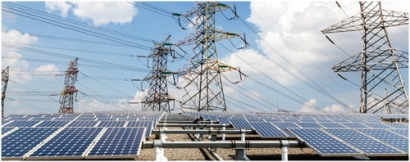
While 81 percent of companies have made efficiency upgrades or plan to, 30 percent or less are considering new energy opportunities such as microgrids and demand response.
According to the survey, 85 percent of respondents said their company is taking action over the next three years to keep its carbon-reduction plans competitive with industry leaders. But the projects initiated or in development skew heavily toward energy, water and waste conservation. Outside of renewables, few of the organizations represented are implementing more advanced strategies and technologies to manage energy and emissions.
Key findings include:
* Eighty-one percent of respondents have made energy efficiency upgrades or plan to within the next two years; 75 percent are working to reduce water consumption and waste.
* Fifty-one percent have completed or are planning to pursue renewable energy projects.
* Just 30 percent have implemented or are actively planning to use energy storage, microgrids or combined heat and power - or some mix of the technologies.
* Only 23 percent have demand response strategies or plan to in the near term.
"We are in the middle of a massive disruption in the way energy is consumed and produced," said Jean-Pascal Tricoire, Chairman and CEO at Schneider Electric. "Companies need to prepare to be an active energy participant, putting the pieces in place to produce energy, and interact with the grid, utilities, peers and other new entrants. Those that fail to act now will be left behind."
A primary barrier to progress may be internal alignment. Sixty-one percent of respondents said their organization's energy and sustainability decisions are not well coordinated across relevant teams and departments, particularly true for consumer goods and industrial businesses. In addition, the same number of respondents said lack of collaboration is a challenge.
Data management was cited as another obstacle for integrated energy and carbon management, with 45 percent of respondents stating that organizational data is highly decentralized, handled at local or regional levels. And of the people who identified "insufficient tools/metrics for data sharing and project evaluation" as a challenge for working across departments, 65 percent manage data at the local, regional or national - not global - level.
More than 50 percent of companies represented have initiated renewable energy projects or plan to do so within the next two years, with healthcare (64 percent) and consumer goods (58 percent) leading the way. Plus, the C-suite and corporate functions have a high degree of involvement in these and other sustainability-focused programs. Seventy-four percent said C-suite members review or approve renewables and sustainability initiatives, for instance, indicating this work is seen as a strategic priority.
And while ROI is the obvious benchmark for energy and sustainability initiatives, companies are starting to take a longer, more comprehensive view of investments. For example, more than half of the respondents said environmental impact is factored in to the evaluation process. Organizational risk (39 percent) is another important consideration.
Participants included professionals responsible for energy and sustainability management, from C-suite and board members to individual contributors. Companies surveyed represent 11 primary segments, including consumer goods, energy/utilities, finance, industrial, healthcare and technology. Results of any sample are subject to variation.
Read the research report for a detailed summary of the survey and results.

